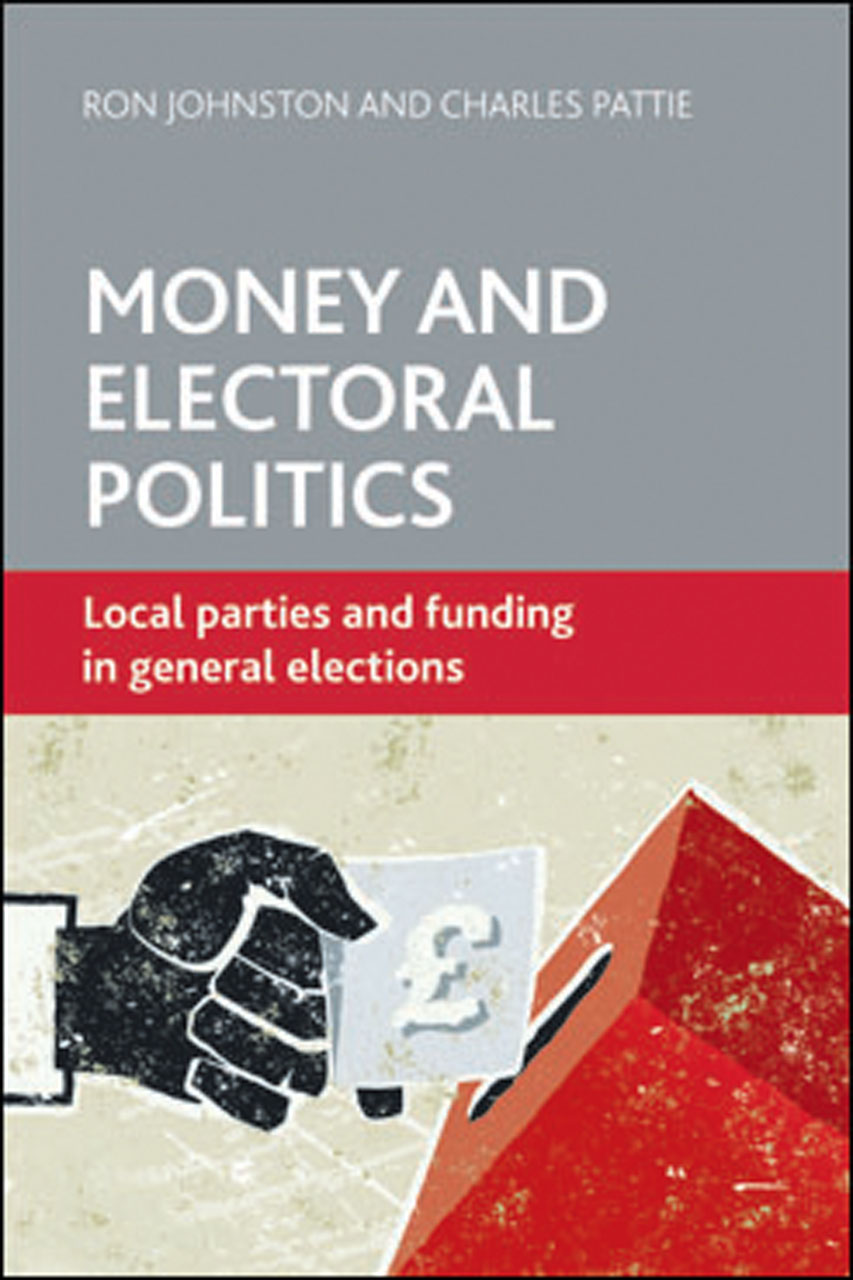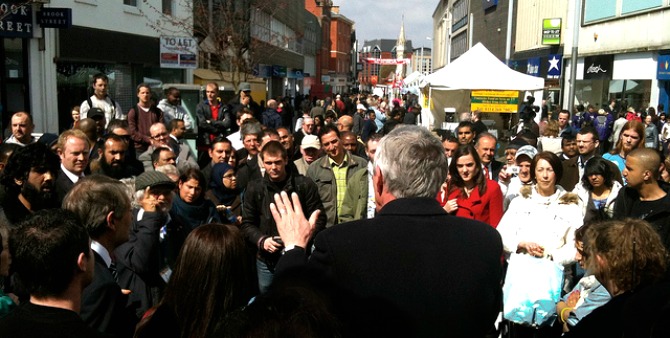After scandals around expenses, donations and lobbying, money has become a dirty word in British politics. In Money and Electoral Politics, Ron Johnston and Charles Pattie present a different view, exploring how money is used by candidates and parties at elections to help engage voters. Highly original and informative analysis follows, finds Richard Berry.
 Money and Electoral Politics: Local Parties and Funding in General Elections. Ron Johnston and Charles Pattie. Policy Press. May 2014.
Money and Electoral Politics: Local Parties and Funding in General Elections. Ron Johnston and Charles Pattie. Policy Press. May 2014.
In Money and Electoral Politics, Ron Johnston and Charles Pattie seek to quantify a phenomenon that is thought to be of growing importance in British politics: the highly localised campaigning that takes place in marginal constituencies at general election time. Their findings confirm some of the popular understanding of this ‘ground war’ between political parties, but also challenge key assumptions through detailed analysis of parties’ financial statements.
Chapter One sets the analysis within the context of a discussion on how elections are fought in Britain, charting the shift in the mid-twentieth century toward centralised national campaigns, in contrast to the constituency-focused campaigns of the previous era. The authors argue that this trend has been exaggerated by commentators and that, in any case, campaigning has shifted recently back toward local settings as the major parties have broadened their class appeal and targeted the small number of voters in marginal seats that swing elections. They also dispute the perception that increasing amounts of money are being spent on campaigns, showing that the combined national spend of the two main parties was lower in 2010 than in 1964 (p.27).
Chapters Two, Three and Four are densely packed with data, mainly derived from the financial returns made by candidates and their parties’ local constituency branches to the Electoral Commission. The authors consider this information and its implications from every conceivable angle, hampered only a little by its incompleteness and lack of standard formats (the book could also be considered a cautionary tale for democracies about how not to monitor election finances).
There are two major findings reiterated by the authors during the discussion, which may seem contradictory. The first is that money spent on local constituency campaigns matters. Parties tend to spend more in marginal seats, and the more they spend, the more likely they are to win. In what might make chilling reading for Gordon Brown, the authors even depict a plausible scenario in which spending modest amounts of extra money on local campaigns could have seen Labour finish as the largest party after the 2010 election (p.81).
The second major finding is that there really isn’t much money available for local campaigns. Most local parties have very low incomes, are starved of donations, and get little if any support from the party head office. The authors argue, convincingly, that this is bad for democracy, because it limits the amount of contact between parties and local communities.

This is especially the case in safe seats, which comprise the majority of the country. There are echoes here of findings from Caitlin Milazzo that voters in marginal seats tend to be better informed about politics than those in safe seats: Johnston and Pattie help explain that this is a consequence of where the money goes. Disappointingly, the authors don’t pursue this line of inquiry by considering how electoral reform might alter the dynamics of local campaign financing; after all, the UK’s First Past The Post system is largely responsible for focusing elections on marginal seats. Proportional Representation systems in Scotland and Wales might have been usefully introduced for comparison.
The most interesting findings in the book are those that relate to specific parties. However, the authors do not spend much time exploring these, beyond displaying the data. For instance, the role of Lord Ashcroft in funding local Conservative campaigns is referenced multiple times, but there is no in-depth analysis of exactly what effect Ashcroft’s money has had within the party. Similarly, the book discusses how trade unions fund Labour campaigns, identifying a trend whereby union money tends to be focused on safe Labour seats, to the frustration of the party leadership, but we get little analysis of why (p.140-1).
On this and other issues, the book could have benefited from further qualitative research alongside the data analysis, particularly interviews with key players inside the parties. In the absence of any available data about the finances of smaller parties, a qualitative study might also have revealed some much-needed insights into the local branches UKIP and the Green Party will depend on to the fight the next election, and how these compare to larger competitors.
Johnston and Pattie end the book by considering how their findings relate to the ongoing debate about party funding. Here, they present an interesting new twist on the debate, essentially sidestepping the question of whether state funding of parties should be introduced. Instead, they suggest that the poverty of local campaigns is as much a symptom as a cause of democratic malaise, and that while more money would help increase contact between parties and voters, it is not a simple solution to political disengagement.
Richard Berry is a Research Associate at Democratic Audit and the LSE Public Policy Group. He is a scrutiny manager for the London Assembly and also runs the new Health Elections website. View his research at richardjberry.com or find him on Twitter @richard3berry. Read more reviews by Richard.








2 Comments